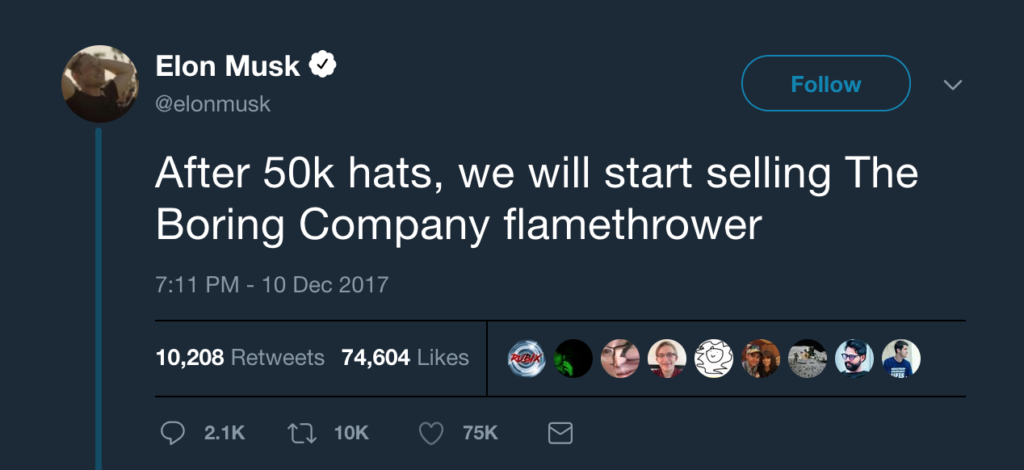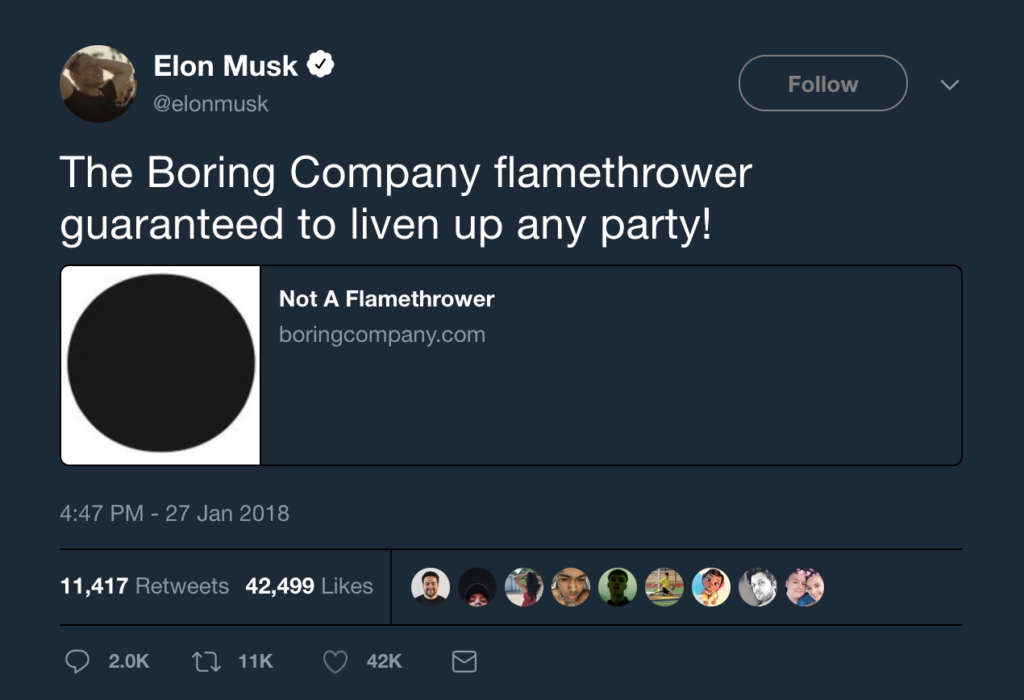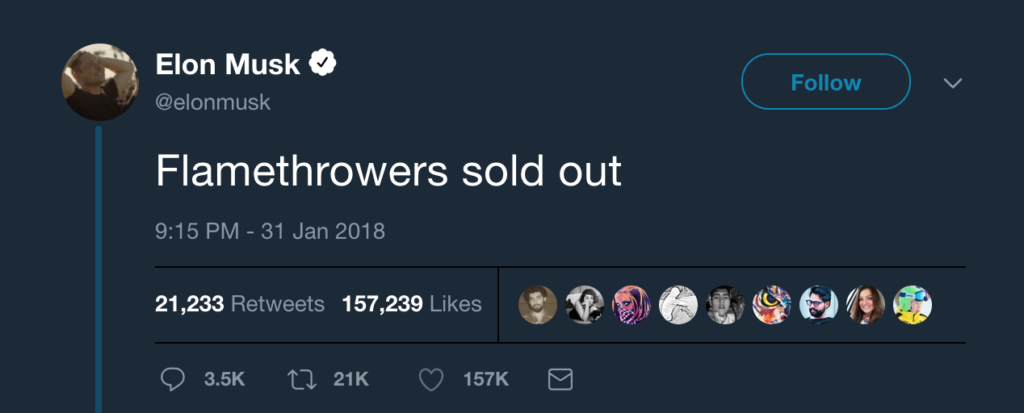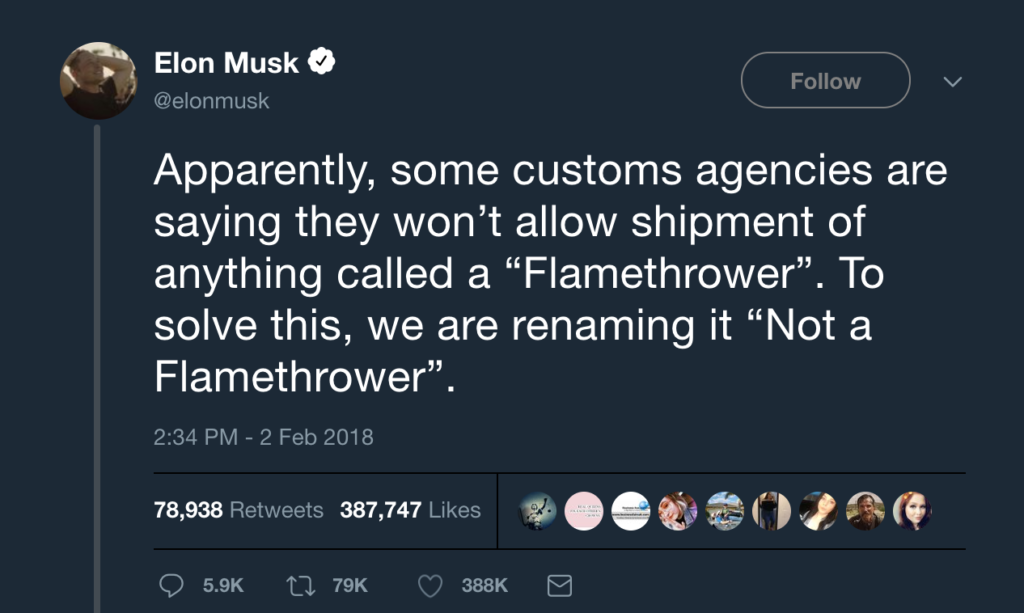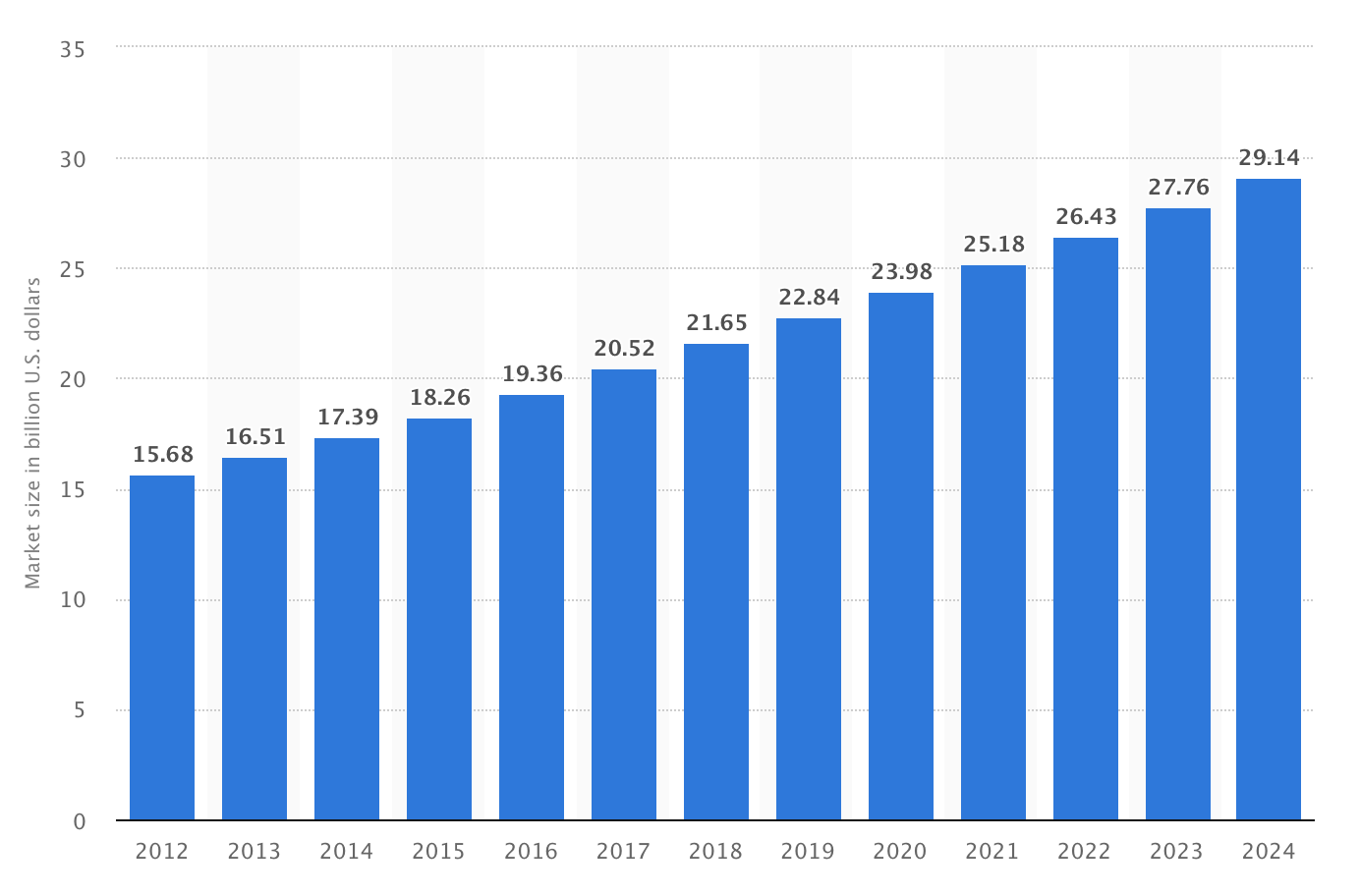The Boring Company Not-A-Flamethrower was casually announced by Elon Musk in this Dec 10, 2017 tweet.
The remaining promotional hats sold out quickly.
Seven weeks later:
100 hours later:
The Boring Company – Musk’s underground drilling company – sold 20,000 Flamethrowers in about 100 hours. That’s $10 million in top line revenue and millions more in free press and captured mind space.
Opps.. It’s not called a Flamethrower. It’s a “Not A Flamethrower” – a brilliant regulatory decision, drawing even more attention (and desire) to Musk’s scheme:
Musk drew some heat for this move – many criticizing him for making a flamethrower for his “rich friends” instead of giving a bunch of money to charity or ending world hunger.
What the non-strategic thinker missed was that Elon wasn’t making a toy for his friends. They have plenty of toys. This was a brilliant marketing stunt.
Of course it’s not just a stunt. The flamethrowers were real. And so is the deal the company just signed with the city of Chicago. The Boring Company will build an 18 mile high-speed (150mph) skate-based tunnel transit system between O’Hare International Airport and downtown Chicago.
Bottom Line: If Musk can get people excited about city planning and tunneling, you can get people excited about what you’re doing.
Entertaining review of the Not-A-Flamethrower pickup day in LA.

